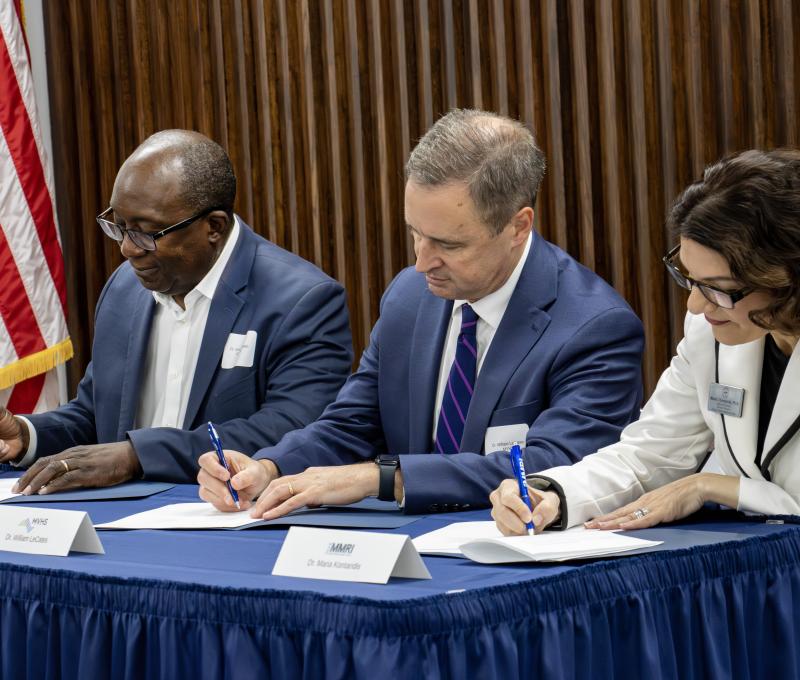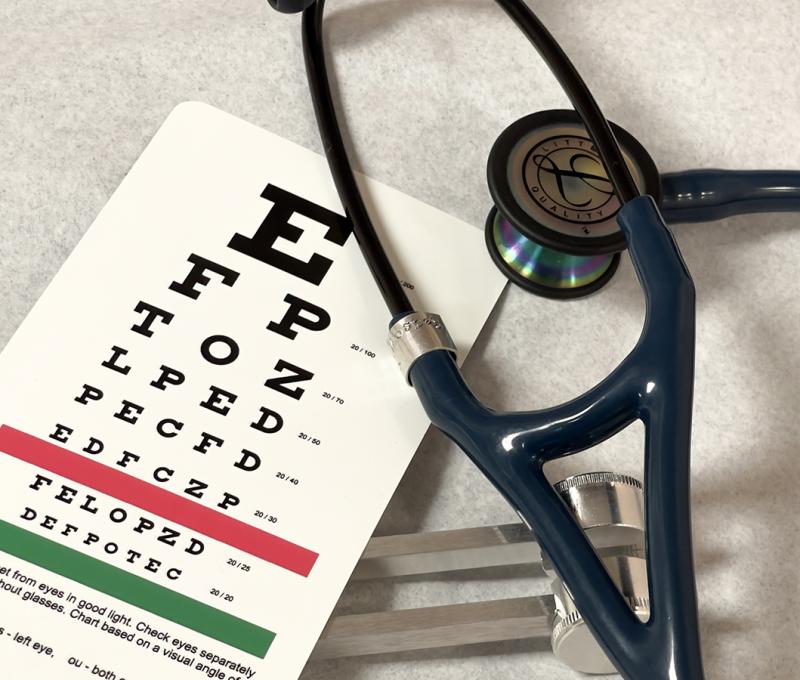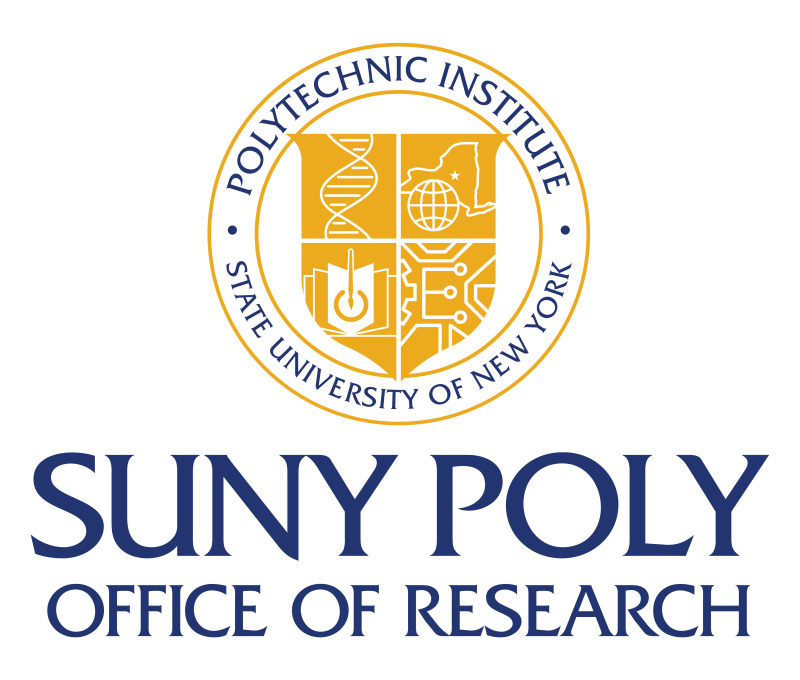News Release: SUNY Poly Awarded $250K from the Semiconductor Research Corporation for Improved Uniformity of Next-Gen Photoresists

For Release: Immediate – November 30, 2020
Contact: Steve Ference, Director of University Communications | (518) 429-7742 | sference@sunypoly.edu
ALBANY – SUNY Polytechnic Institute (SUNY Poly) announced today it received an award from the Semiconductor Research Corporation (SRC) to fund ongoing research by Associate Professor of Nanoengineering Dr. Gregory Denbeaux, Professor of Nanobioscience Dr. Robert Brainard, and several students who seek to improve the uniformity of photoresists, a key component of the photolithography process, which is used to create computer chips layer by layer. With greater uniformity of photoresists, the researchers aim to facilitate higher computer chip manufacturing yields, which could continue to drive down computer chip costs.
“I am extremely grateful to the SRC for this award underpinning research in partnership with Dr. Brainard, the first chemist in the world to design resists for use in Extreme Ultraviolet lithography, which will enable a number of our graduate and undergraduate students to gain real-world research experience related to current technological challenges,” said Dr. Denbeaux. “As we look closely at the nanoscale level, we see that materials are non-uniform, and by studying this in photoresists, we hope to improve their uniformity to drive more consistent, qualitative results in the manufacture of computer chips. Increasing their yield and decreasing production costs can support the success of this important industry.”
Light-sensitive photoresists are deposited on computer chip materials as part of the photolithography process and then exposed to light, allowing unwanted material to be etched away; the desired computer chip architecture remains. The $250,000, three-year research effort will focus on the ways in which the deposition process can be varied to achieve better results.
Drs. Denbeaux and Brainard will work with two SUNY Poly students, senior Sunny Choi and Belle Antonovich, a junior, who have both earned SRC Student Fellowships, along with additional graduate and undergraduate students, to conduct the multidisciplinary research. The team will make custom Extreme Ultra-Violet (EUV) photoresists in Dr. Brainard’s chemistry laboratory and utilize atomic force microscopy (AFM) measurements in the metrology laboratory to obtain the surface profile of materials and their roughness, with custom exposures and processing taking place in Dr. Denbeaux’s laboratory.
“I am very excited to be a part of this research effort as it is an excellent opportunity to gain hands-on experience while simultaneously contributing to the improvement of photoresist stochastics in EUV lithography,” said Belle Antonovich. “I would like to thank SUNY Polytechnic Institute and the Semiconductor Research Corporation, along with Drs. Denbeaux and Brainard for making this possible.”
“I am grateful to research EUV photoresists under the guidance of Drs. Denbeaux and Brainard with the support of SRC,” said Sunny Choi. “This is a great opportunity to develop research skills and knowledge that are highly relevant to the semiconductor industry. I am excited to see the impact of our efforts.”
####################
About SUNY Polytechnic Institute (SUNY Poly)
SUNY Poly is New York’s globally recognized, high-tech educational ecosystem. SUNY Poly offers undergraduate and graduate degrees in the emerging disciplines of nanoscience and nanoengineering, as well as cutting-edge nanobioscience programs at its Albany campus, and undergraduate and graduate degrees in technology, including engineering, cybersecurity, computer science, and the engineering technologies; professional studies, including business, communication, and nursing; and arts and sciences, including natural sciences, mathematics, humanities, and social sciences at its Utica campus; thriving athletic, recreational, and cultural programs, events, and activities complement the campus experience. As the world’s most advanced, university-driven research enterprise, SUNY Poly boasts billions of dollars in high-tech investments and hundreds of corporate partners since its inception. For information visit www.sunypoly.edu.








